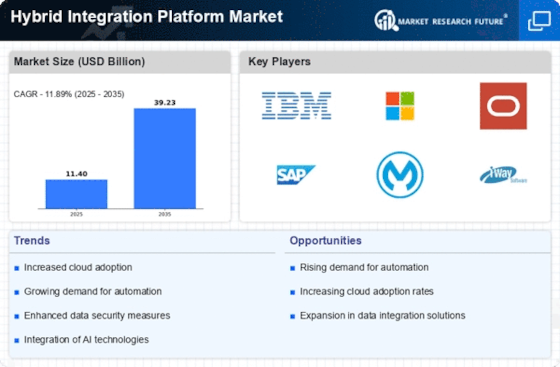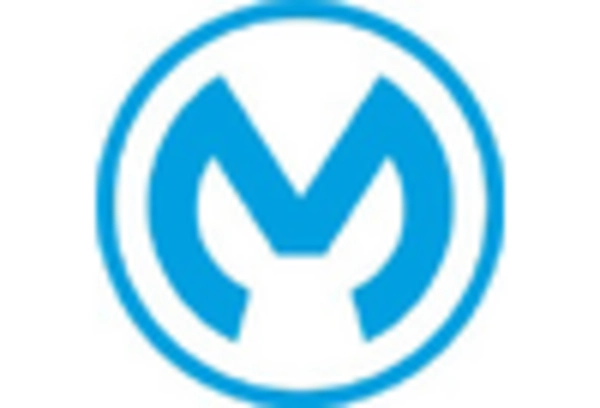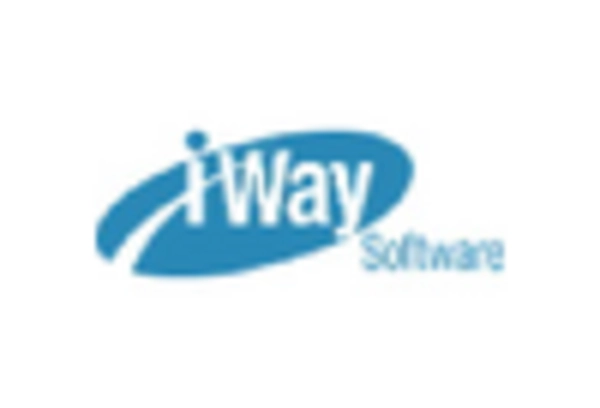Market Share
Hybrid Integration Platform Market Share Analysis
Organizations use several market share positioning methods to get an edge in the strong Hybrid Integration Platform (HIP) industry. One common strategy is separation, where companies differentiate their HIP arrangements by delivering unique features, high-level functions, or frequent customer service. This method aims to demonstrate a company's value to potential customers. Focusing on development and staying ahead of mechanical trends helps attract niche clients and establish a strong presence.
Cost leadership is another market share positioning method when companies intend to provide HIP plans at lower prices than competitors. To reduce creation and circulation costs, this technique demands functional competency, economies of scale, and crucial collaborations. Cost leadership can help increase market share, especially among cost-conscious customers who value moderation over luxury. To ensure long-term success, companies should balance cost-cutting with product quality and customer loyalty.
Some companies specialize in clear projects or business verticals with customized HIP solutions. Organizations might specialize in one area and build a reputation for providing highly customized and effective integration solutions. This process ensures that the company's offerings match the needs of the target market, fostering customer loyalty and long-term partnerships.
Market share positioning in the HIP market also requires coordination and key relationships. To expand and reach new customers, companies may cooperate with other innovation providers, counseling businesses, or industry-specific groups. Companies may improve their market standing by offering full solutions that handle a wider variety of integration issues by using each partner's strengths.
In market share positioning, a credible marketing and marking strategy is crucial. Organizations should clearly communicate a compelling proposition to their target audience. Building an image that resonates with clients may build trust and loyalty, influencing their purchases. This involves highlighting the HIP arrangement's technical capabilities and the company's overall insight, reliability, and support.
HIP markets are growing fast, therefore flexibility is key.This might involve consolidating new integration patterns, enabling emerging technologies like IoT or blockchain, or increasing security to handle emerging threats.


















Leave a Comment